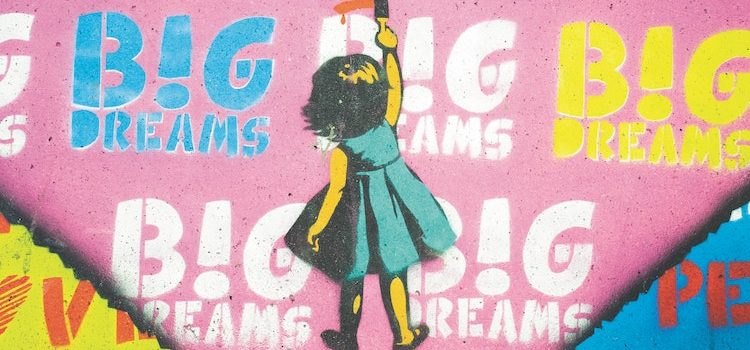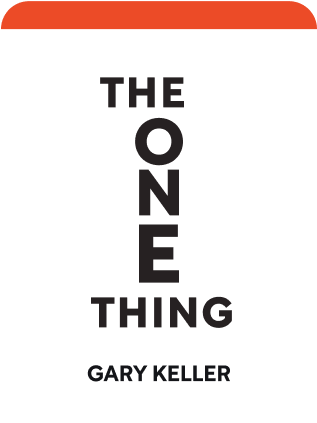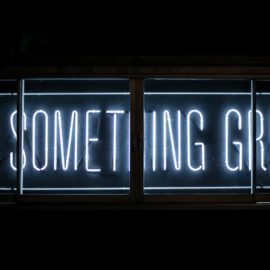

This article is an excerpt from the Shortform book guide to "The One Thing" by Gary Keller. Shortform has the world's best summaries and analyses of books you should be reading.
Like this article? Sign up for a free trial here .
What could you do if you chose to think big and stretch yourself? Is it possible to think too big?
Many people fear “going big” or pursuing exceptional achievement in their professional lives because it sounds difficult or like “pie in the sky.” Lowering your sights seems more prudent and realistic than stretching yourself. But thinking big is essential to extraordinary results.
Read more to learn why you should think big and stretch yourself.
Always Think Big
Extraordinary results rely on big thinking. (This is different from having a small focus—that is, narrowing your focus to a single priority or most important step toward your big goal. You need to think big and focus small.)
Since what you think determines what you do, how big you think—how far you stretch yourself—determines your level of success. Big success has to start with big thinking. For example, Sabeer Bhatia, the man who developed Hotmail and eventually sold it to Microsoft for $400 million, arrived in Silicon Valley as an immigrant with only $250 and a big idea. He believed he could build a major tech company that stood out from any other in record time—and he did.
Other examples of thinking—and achieving—big are:
- Arthur Guinness—when he set up his first brewery, he signed a 9,000-year lease.
- J.K. Rowling imagined a seven-book series about Hogwarts, before writing the first chapter of her first Harry Potter book.
- Sam Walton believed Walmart would be so successful he set up an estate plan to minimize future inheritance taxes before opening his first store. Ultimately, he saved his heirs $11 billion to $13 billion in taxes.
Think as big as you can, stretch yourself, and base your actions on succeeding at the highest level. When people feel a need to reinvent themselves, it’s often because their goals were too limiting. Your goals can be either a platform for your next level of success or a ceiling constraining you.
When you set out to do something that seems daunting at first, you often discover that it was easier than you thought it would be. In any case, you grow in the process of reaching for a big goal and stretching yourself. When you look back, what seemed insurmountable looks smaller because you’ve grown in your thinking, skills, and relationships.
The Importance of Mindset
Stanford psychologist Carol S. Dweck studied how our thinking or mindset influences our actions. She identified two mindsets: a “growth” mindset that thinks big and seeks growth and a fixed mindset that thinks small and seeks to avoid failure. (Shortform note: Read the Shortform summary of Mindset by Carol S. Dweck here.)
Dweck found that growth-minded students used better learning strategies, were more confident, applied greater effort, and achieved more academically than their fixed-minded peers. They didn’t limit themselves and tended to reach for their potential.
Dweck noted that you can change your mindset to a more positive way of thinking, like any new habit, by applying discipline until the mindset becomes routine.
There’s no telling where thinking big can take you. Apple executive Scott Forstall looked for growth-minded people when seeking recruits to work on a new, top-secret project. He advertised for people willing to make mistakes and struggle on the chance they could come up with something extraordinary. He accepted only those who immediately jumped at the challenge. His team went on to create the iPhone.
Stretch Yourself to Live a Big Life
Small thinking diminishes your life, while big thinking enlarges it, so aim high:
- Avoid incremental thinking. Stretch yourself in every area of your life—if your goal is 10, aim for 20.
- Order off the menu. Instead of choosing from the available options, imagine new options.
- Act boldly, and don’t be afraid to fail. Failure is a stepping stone to exceptional results when you learn from mistakes.
Big success has to start with big thinking.

———End of Preview———
Like what you just read? Read the rest of the world's best book summary and analysis of Gary Keller's "The One Thing" at Shortform .
Here's what you'll find in our full The One Thing summary :
- Why focusing daily on one thing, rather than many, is the key to success
- How success is like dominos
- The six common myths about success






